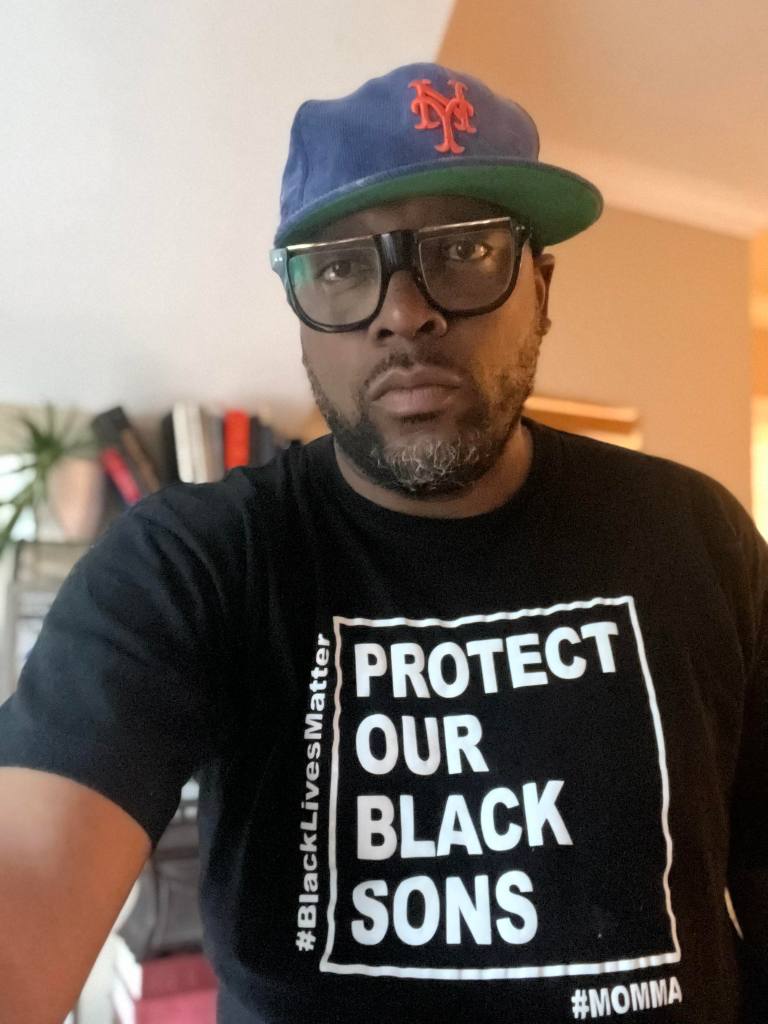
This weekend I encountered the ever-lurking undercurrent of racism as I spent time in Augusta, Georgia, a city I once called home. It is a city where I grew up as a teen attending a high school named after the first African-American certified teacher in the state of Georgia, A.R. Johnson. Years later, working as a school leader, I remind my students of the importance of being active in their community and working toward social justice and equity. I pour into them lessons of resistance, activism, and the need to engage in struggle on many different levels when your rights are violated. I explain to them that these struggles could take the form of a petition, protest, or boycott. Historical examples of resistance are a lighthouse for those of us still navigating the rough seas of change in America. I liken our decisions in these tense moments to countermoves in the game of chess.
While dining at one of my favorite seafood restaurants on Washington Road, I noticed two men seated at the bar, one older and another younger. Both were casually dressed, like they’d just left a local golf course. I gathered that the younger man was an employee of the establishment based on his familiar interactions with the staff, but more importantly, his use of the electronic iPad-type device at the bar that the bartender was using to take orders. When the bartender left the area, the younger man entered some information into the device and returned to his seat quickly. When she returned to the bar and looked at the device, she remarked, “What just happened? She’s not even working today.” I asked for my check at this time.
As I got into my car, I could hear someone yelling. I started my car and the yelling became louder and more distinct. The older man that was at the bar with the young man was now walking toward my car saying “You fucking nigger! You fucking nigger! I’ll snap your neck you fucking nigger.” I looked at him for a moment, to confirm that his racial slurs were being directed at me. I pulled out of the parking lot and drove away. The incident left me unsettled and angry. As I left the parking lot, I questioned why I was leaving and not confronting the issue in a civil manner as I have taught my students. What was going to happen if I did nothing? My inaction would only further normalize this undercurrent of racism moving through our society? While I wasn’t willing to confront the ignorance with more ignorance in the parking lot, there was a way to respond without being triggered by racial epithets that have been used to spark fear and hate toward African Americans for centuries. I returned to the restaurant 10 minutes later and saw both of the men still seated in the same area. When they saw me, they immediately looked shocked and asked for their check. I asked to speak with a manager who quickly came over and gathered the details about the incident. I shared the events that led up to the threats and the racial slurs in the parking lot. He was apologetic, but not shocked, and offered to compensate me for my meal and drinks. I declined. Was he really trying to minimize this to something that could be resolved by compensating me for a $40 bill? This was much deeper than a need for compensation for food and beverage. He took my name and phone number and assured me that the issue would be addressed.

Hours later, I stopped by a former neighbor’s home and shared what transpired with him and his wife. He asked, “Do you think it possibly had something to do with your shirt?” It was at that moment I remembered that I was wearing a shirt that read “Protect our Black Sons”. The shirt was designed in memory of Amaud Aubery, who was gunned down in a racially motivated hate crime in Brunswick, Georgia in 2020. Was my shirt a trigger for this incident? I dismissed this notion, telling him that that logic is equivalent to saying that the way a woman is dressed somehow triggers a sexual assault, offering unwarranted grace to an assailant. Ironically, I’d just returned from a weeklong vacation in Glynn County where the murder of Aubery occurred. Now I found myself on the receiving end of old triggers that were pointed in my direction. Instead of running, I have decided to formally confront the issue and report it as a hate crime. Hate crimes are defined by the Department of Justice as assault, murder, arson, vandalism, or threats to commit such crimes. It may also cover conspiring or asking another person to commit such crimes, even if the crime was never carried out.
The complexity of this incident lies in the culpability of an establishment for the behavior of their patrons, particularly when they are guests of their employees. What recourse is there for those who create a racially hostile environment? Just as I struggled with my countermoves, I am interested in what countermoves the ownership and management will take in the immediate future toward creating an inclusive space for all patrons and addressing issues of racism without impunity? On a micro-level, we must all confront just how uncomfortable we are willing to be right now with the racial climate of our communities. Are we willing to confront business, our friends, and even our co-workers, holding them accountable for their words and actions? Do we make excuses for those who violate our community standards by attributing it to other factors? These old triggers require new resistance and strategic countermoves.
Leave a comment